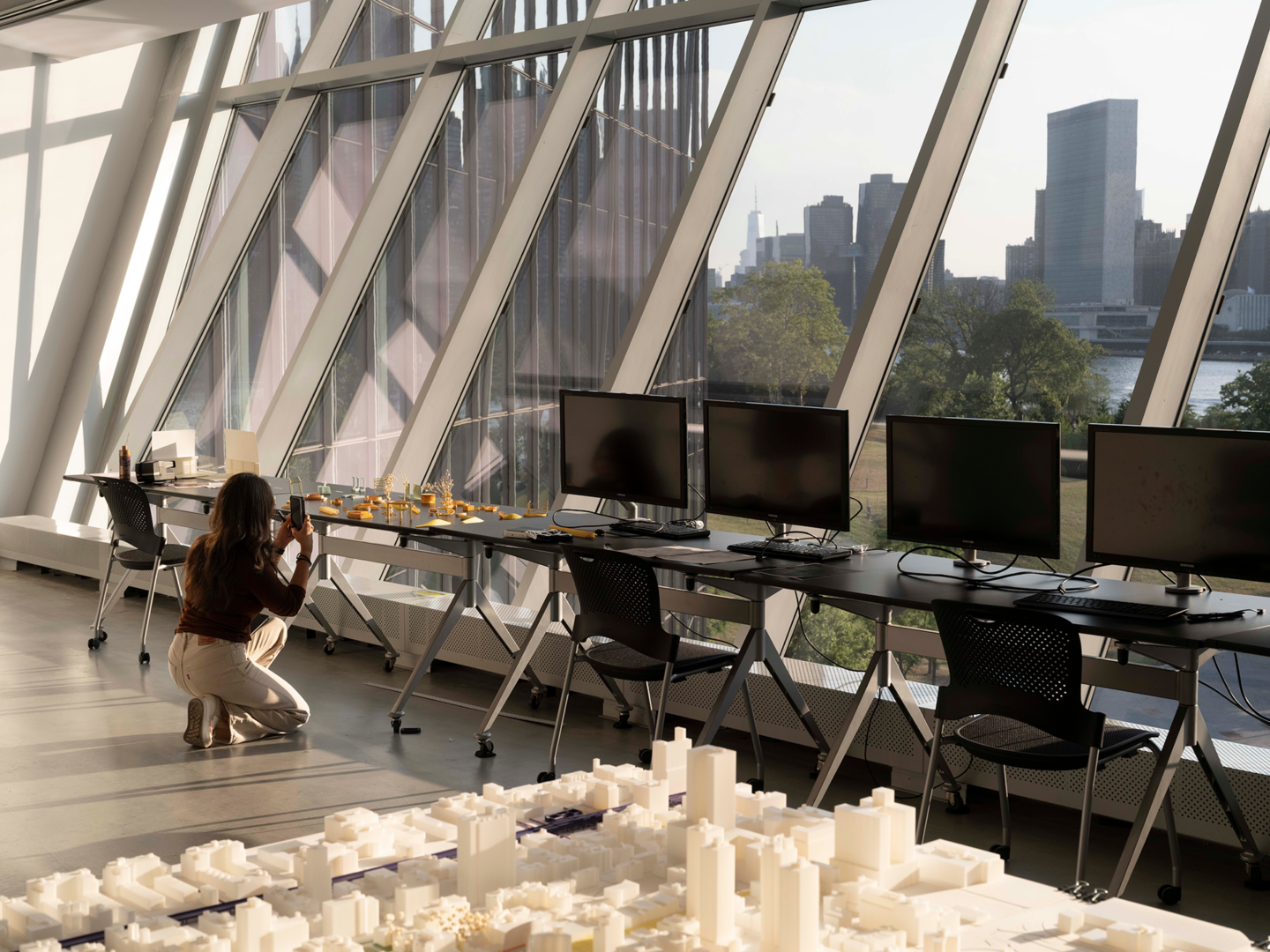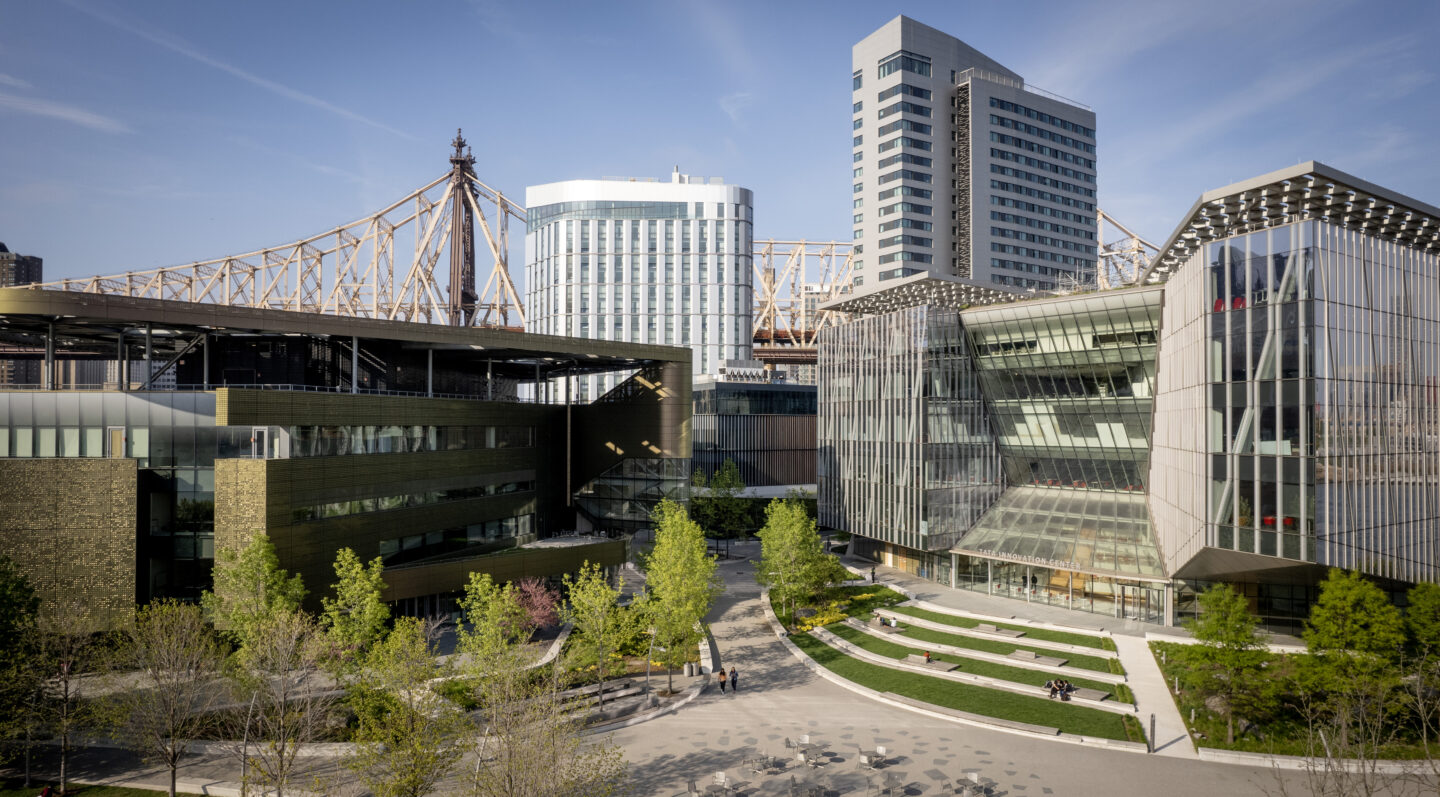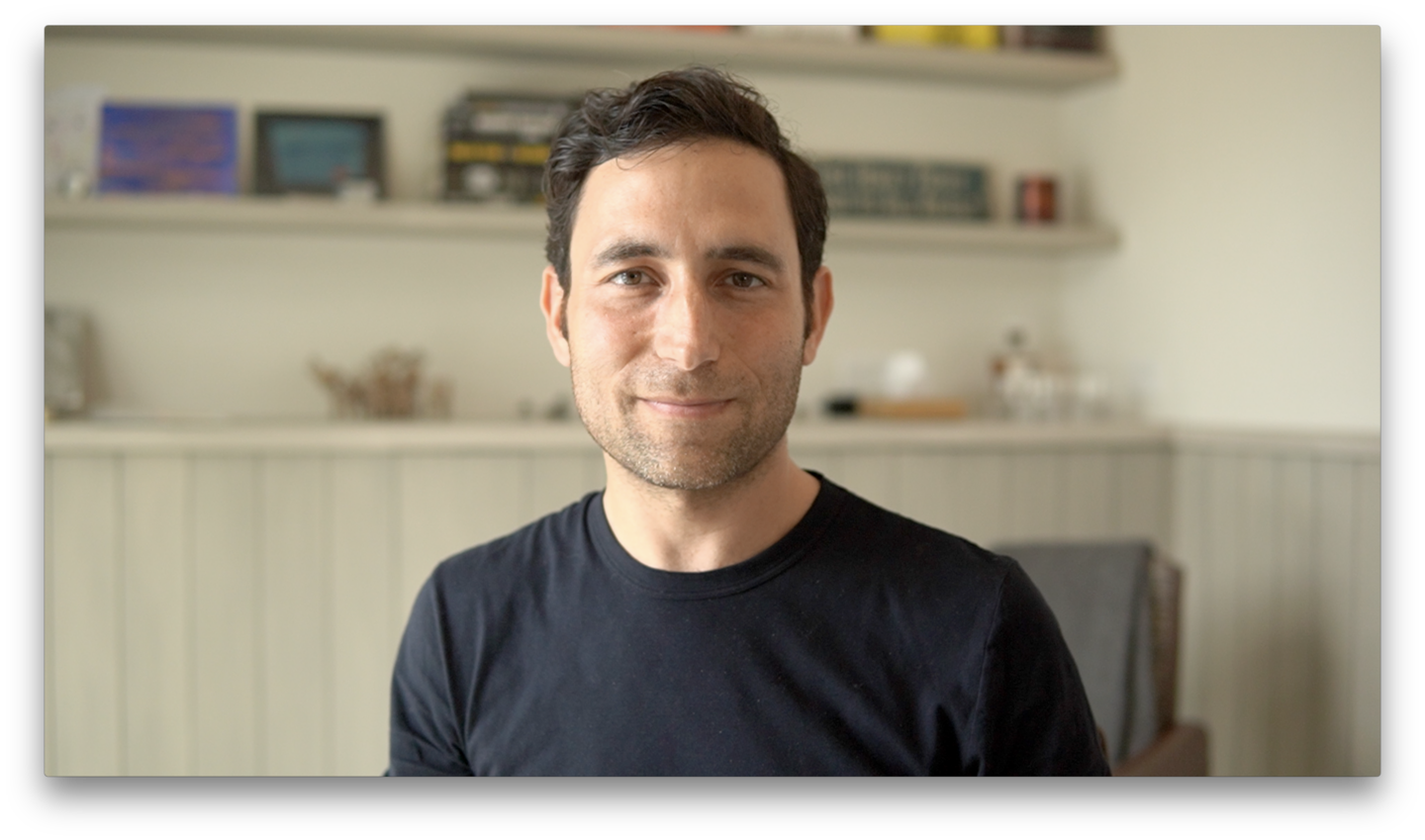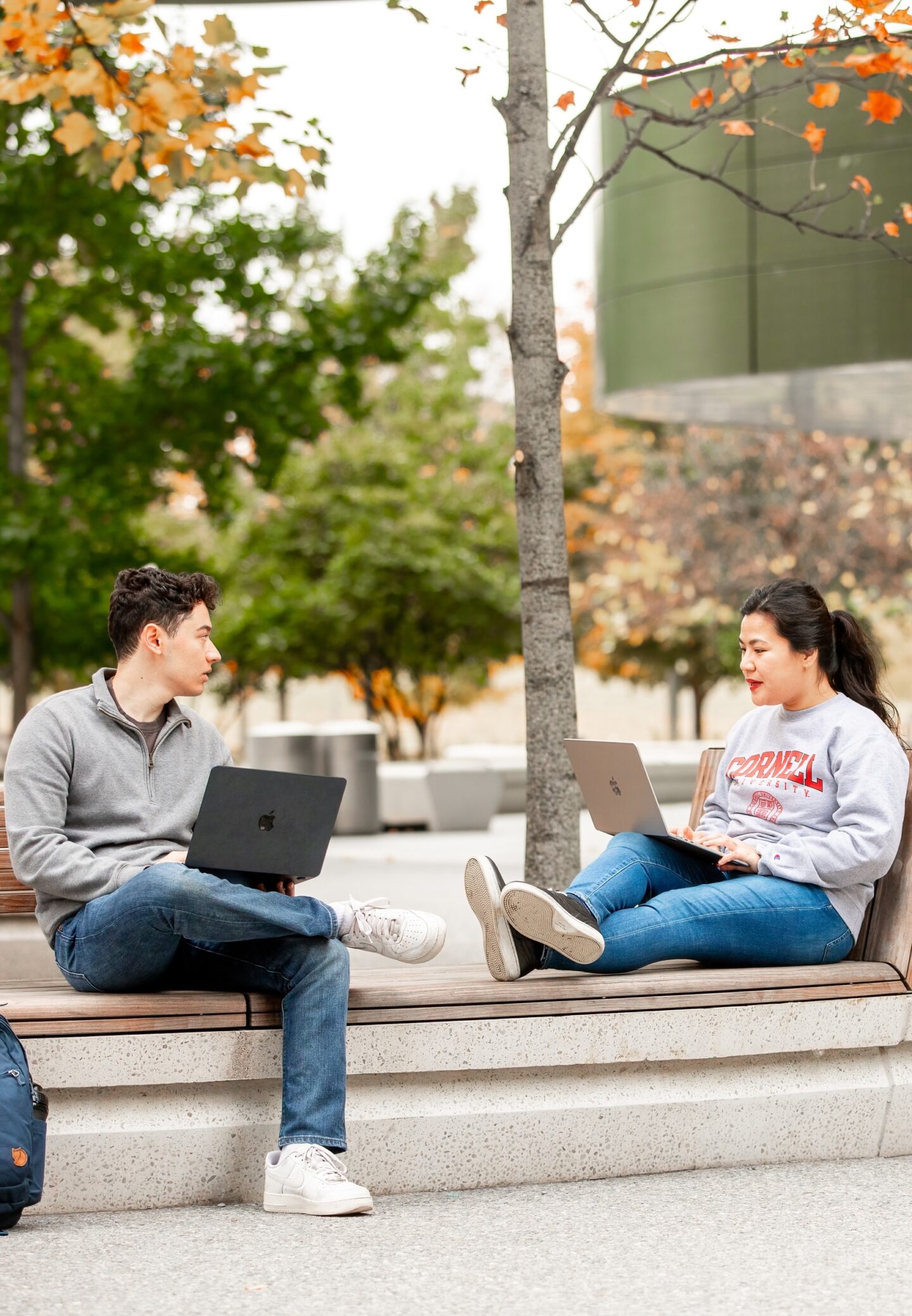
Cornell Tech leadership, alongside elected officials, faculty, students, staff, and the Roosevelt Island community, hosted an official ribbon-cutting ceremony to celebrate the opening of the campus’s new MakerLAB on May 2.
The MakerLAB facility, now located on the first floor of Cornell Tech’s Tata Innovation Center, serves as an accessible production hub for Cornell Tech students and faculty to bring their ideas to life. From 3D printing prototypes of medical devices to designing sustainable buildings and communities, the infrastructure allows startups to refine their products, students to gain hands-on experience creating real solutions to common problems, and faculty to advance their research.
Special guests included Congressman Jerry Nadler, New York City Council Member Julie Menin, New York City Economic Development Corporation Head of Innovation Jon Schulhof, and Queens Deputy Borough President Ebony Young. All of these leaders visited the campus to see how the student research is connected to the booming New York City tech ecosystem, as well as the capabilities of the facility, which include:
- A wood shop designated for large-scale prototyping needs and assembly that requires power tools.
- A laser room with cutting and engraving equipment for precision fabrication.
- An electronics lab containing tools and components for electronics prototyping and development.
“The MakerLAB embodies Cornell Tech’s mission of driving new ventures and economic growth by advancing applied research,” said Greg Morrisett, Jack and Rilla Neafsey Dean and Vice Provost at Cornell Tech. “Expanding the bridge between the academic and business communities, this facility is equipped for everyone in the Cornell network — whether they’re a graduate student in electrical engineering developing innovative hardware, an MBA student launching a startup, or a Weill Cornell Medical student on the brink of introducing a new healthtech product to market. The Cornell Tech community is developing and advancing solutions that serve and benefit our community here in New York and across the country.”
The MakerLAB is part of a recent 15,000-square-foot activation within the Tata Innovation Center featured during the event. The Bridge, a collaborative workspace for entrepreneurs and innovators that opened in February, brings much-needed office space to Roosevelt Island. Companies from within the Cornell and New York City tech ecosystems have been quickly moving in, recognizing the benefit of the state-of-the-art workspace and location, as well as being immersed in Cornell Tech’s creative and innovative setting. The Bridge is already at 40 percent of its capacity and includes several startups founded by Cornell Tech alumni.
“At Cornell Tech, we’re creating an environment where ideas collide and partnerships thrive,” said Niti Parikh, Director, Learning Spaces and MakerLABs at Cornell Tech. “New York City, its nonprofits, and its creative thinkers offer a rich network for our students and collaborators to contribute to the macro-goals of the city. MakerLAB and The Bridge are more than just spaces at Cornell Tech. They support the campus mission as a catalyst fueling the engine of innovation, technology, and economic growth in New York.”
***
What people are saying:
Andrew Kimball, President and CEO of the New York City Economic Development Council, said, “The opening of Cornell Tech’s MakerLAB marks a significant milestone in fostering cutting-edge innovation and nurturing the next generation of tech professionals here in New York City. This accessible space will be a hub where creativity, entrepreneurship, and learning will converge. We look forward to continuing to work with our partners at Cornell Tech to drive long-term economic benefits, spark new innovation, and create equitable career pathways to power the City’s thriving tech ecosystem.”
U.S. Congressman Jerry Nadler said, “The opening of the MakerLAB at the Tata Innovation Center is an exciting next step for Cornell Tech and also for New York City as it furthers its place as a world-class hub of innovation and development. By providing students, faculty, and entrepreneurs with prototyping tools and resources, the MakerLAB brings creative solutions to life – enabling the initial seed of an idea to be brought to reality as a refined prototype that is ready to be launched to production and market. I eagerly anticipate the novel products and research that will be incubated in this groundbreaking space.”
NYS Senator Liz Kreuger said, “The MakerLAB at Cornell Tech brings a unique and needed space for creative invention and new opportunities for research, collaboration, and economic growth to NYC. It offers a one-of-a-kind exceptional space, tools, and resources for experimentation and innovation — a tremendous benefit and boost for NYC. Kudos to the team at Cornell Tech for making it happen!”
New York City Council Member Julie Menin said, “Cornell Tech’s MakerLAB enables students, faculty, and the larger campus community to test prototypes from an initial sketch to refined products. Cornell Tech has always been a space of innovation in the tech sector, and this facility will be critical in helping the students of today and the inventors of tomorrow. This significant investment provides the tools needed to make product ideas become a reality and will further grow the tech startup industry in New York City.”
NYS Assembly Member Rebecca Seawright said, “The MakerLAB will enable students to leverage design research and transform ideas into impactful projects that will benefit communities across our state and nation. I’m proud of our continuing collaboration with Dean and Vice Provost Greg Morrisett and Cornell Tech. During the pandemic’s direst days, Cornell Tech students designed and 3D-printed face shields, which I delivered to health workers at Coler Hospital, a testament to the campus’s role as an invaluable, service-oriented stakeholder on Roosevelt Island. Today’s launch signals Cornell Tech’s ongoing commitment to deploying applied sciences in the service of public health, job creation, and economic growth.”
Queens Borough President Donovan Richards said, “The work of transforming Queens and New York City into the global leader in technology and innovation must be holistic in nature. That means investing in our future tech ecosystem just as much as we are in our current tech climate, and that’s exactly what’s being done at Cornell Tech with the launch of its new MakerLAB. As we put forth initiatives in The World’s Borough, like the creation of the Global Tech and Innovation Center and the Queens Tech and Innovation Challenge, we must do so working hand-in-hand with our tech educators to create the pipeline between our communities and the innovation sphere. With the MakerLAB, that pipeline is alive and well.”
Queens Chamber of Commerce President Tom Grech said, “As Queens’ tech sector continues to grow and thrive, having a world-class facility like this just across the river will create new opportunities for collaboration, innovation, and entrepreneurship. The MakerLAB will help students, startups, and researchers turn bold ideas into real-world solutions. We congratulate our friends at Cornell Tech, who have been an instrumental partner to the Queens Chamber in our efforts to further establish our borough and our city as a global hub for technology and innovation.”
About Cornell Tech
Cornell Tech is Cornell University’s state-of-the-art campus in New York City that develops leaders and technologies for the AI era through foundational and applied research, graduate education, and new ventures. Located on Roosevelt Island, the growing campus was founded in partnership with the Technion-Israel Institute of Technology and in close collaboration with the NYC Economic Development Corporation after Cornell won a worldwide competition initiated by Mayor Michael R. Bloomberg’s administration to create an applied sciences campus in New York City. More than 1,000 Cornell students are now educated annually on the campus, including 700 in Cornell Tech programs. Since opening in 2012, nearly 120 new companies have spun out from startup programs at Cornell Tech, and 95 percent of them are based in New York City. Cornell Tech continues to have a transformative economic impact on the region’s tech sector.




